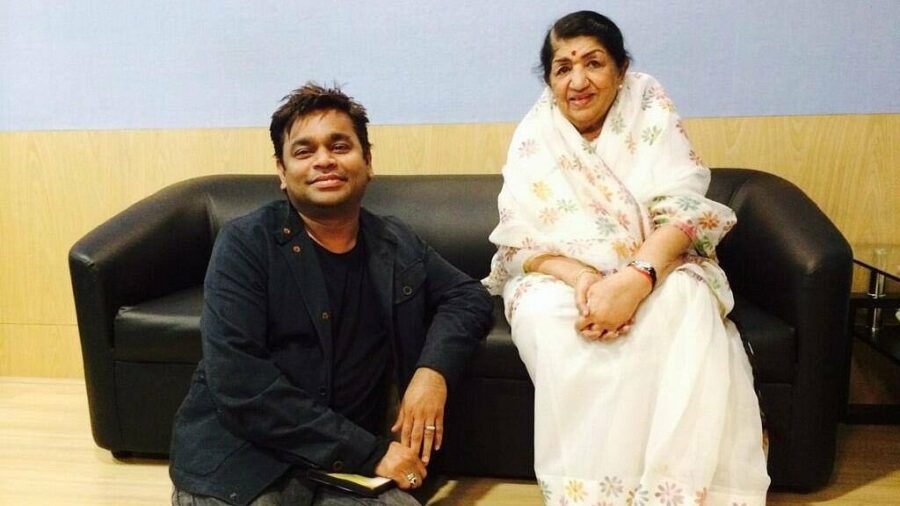Music composer AR Rahman condoled the death of singer Lata Mangeshkar with a video homage to the ‘Nightingale of India’. He said that she was not just a “singer or icon” but “part of the soul and consciousness of India.”
Lata Mangeshkar, the legendary 92-year-old singer, died on Sunday in Mumbai’s Breach Candy hospital, suffering from multiple organ failure.
Rahman, in a nearly five-minute video, reminisced the moments spent with Mangeshkar and said, “It is a very, very, sad day for everyone. She was part of the soul, part of consciousness of India, Indian-ness, Hindustani music, Urdu poetry, Hindi poetry, Bengali and so many other languages she sang in. This void is going to remain forever, for all of us.”
The composer went on to say how his connection with the late singer dated back to the times of his father, composer RK Shekhar. “My experience with her goes back to my dad, who passed away when I was very young. He had a picture of her near his bed so he’d wake up to her face and get inspired to go to his recordings,” he added.
While Mangeshkar has sung over 20,000 songs in about 36 languages, one song that has stood the test of time, and has appealed to all generations, is Jiya Jale from the Hindi film Dil Se (1998). Composed by Rahman, Jiya Jale is a romantic duet voiced by Mangeshkar and MG Sreekumar. Rahman and Mangeshkar have also collaborated on the songs Luka Chuppi (Rang De Basanti), O Paalanhaare (Lagaan), and multiple songs from the film Zubeidaa, among others.
The Oscar-winning composer mentioned that he was “lucky” to get to record her singing, and said that he learned the most important things about performing on stage by being a part of her show. Recollecting an incident that changed his life, Rahman said, “I have never taken my singing seriously because I always imagined myself as a composer and a musician. And for the few songs I have composed for her, after the rehearsals at 4 pm, she would go to this room, sit with her assistant, and start singing them very slowly, every lyric clearly.” Witnessing that one incident changed his life, he added.
He went on to say that after that experience, he would “go and put on the tampura and practice, get the warm-ups done” before every show.
Rahman also mentioned that one of the lessons that the younger generation could learn from Mangeshkar, was to lean into something deeply and put faith in it and give it their all without expecting any returns.
Recommended
Rahman went on to refer to the veteran singer as “one of the last pillars of last century’s legacy of Indian music,” saying that her passing leaves behind a big void that will be hard to fulfil.
“I know that there are hundreds and thousands of singers who get inspired by her songs and are singing and probably taking it much further in their own way,” Rahman said.
“Still, I think the impact, the foundation which her generation has laid, she, along with Rafi saab, Kishore Da, Manna Dey, Shakeel saab, Naushad saab, SD Burman, Salil Chaudhary, is something I really will value for the rest of my life. All we can do is celebrate and learn from this legend who has left us. God bless her soul,” he concluded.



